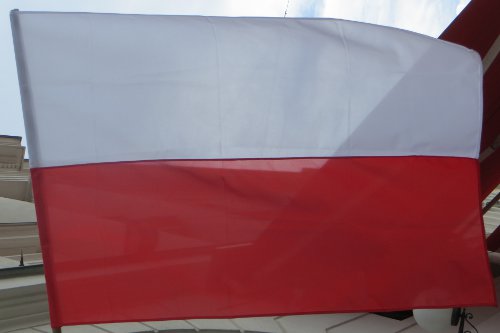Best of Poland

We visited Poland for 7 days starting August 11, 2014 and we made stops at Jastrzebie zdroj and Warsaw, as well as a day trip to Krakow. During our stay, we enjoyed many traditional dishes, beautiful architecture, and an unforgettable history lesson. The painful past of Poland and their resiliency to rebuild their nation after the horrors of the Second World War and subsequently Soviet Union occupation inspired us! We loved the Wawel Cathedral in the Krakow Castle, a fusion of so many architectonic styles, kings, and a dragon’s legend. Warsaw, a city that was reborn after a total destruction by the Nazis is an example of human tenacity and hopes.
Nazi occupation to Poland started on September 1, 1939 and marked the beginning of World War II. The Soviet Army also invaded Poland on September 17, 1939. Germany and the Soviet Union divided the territory of Poland among themselves. During the double occupation, numerous precisely planned executions, deportations, and persecutions were carried out within Poland. Poland was fighting two monsters at once, the Germans established concentration camps where they imprisoned thousands of Poles and the Soviet Union also disarmed the Poles sending them to labor camps and murdering them became standard. On October 1939, the occupants started gathering the Jews in ghettos. From December of 1941, the Germans carried out mass murders of the Jews in extermination camps; Polish syllabuses were banned from schools and access to education was minimal; and scientists and teachers were also sent to concentration camps. Clandestine study groups started taking place and underground anti-communist publications played an important role in keeping Poles informed regarding the true incidents of the war which was persistently distorted by the Soviet Union. The Catholic Church was perceived by the occupants as a source of national resistance, many priests were imprisoned and murdered, but regardless of the repression many others continued to work underground and bring help to Poles and persecuted Jews.
On August 1, 1944, after nearly 5 years of occupation, the Warsaw Rising started and Poles fought a battle of 63 days against the German Nazis in which many lost their lives. The rising reached an end on October 5, 1944, the insurgent army and the Poland national authorities were taken from the capital into captivity. Hitler ordered the complete destruction of Warsaw, 85% of the city was bombarded and destroyed. Even though the Soviet Union army was already in Poland and had encouraged the Warsaw Rising through broadcasting, they stayed in the distance looking at the tragedy without doing anything to help the Poles fight against the German Nazis. Before the Warsaw Rising the city had 900,000 inhabitants and after the rising only 1,000 people were still in the city. The Soviet Army entered into a destroyed Warsaw in January 17, 1945. The destruction of the capital, which was not able to actively oppose the postwar Communist occupation, made it easier to impose the communist regime and Sovietize the Polish society. The end of the Second World War was declared on May 8, 1945. After the war, many of Poland’s leaders who participated or contributed in the Warsaw Rising were capture and sentence to prison by the Soviet Union in Moscow, which many died in prison. It took years and resiliency for the city of Warsaw to be rebuilt. 10 years later the capital once again obtained one million inhabitants.
If miracles do not exist, what is Poland? A human strength and tenacity, a nation that was reborn after some of the worst horrors of history. We admire Poles with all our hearts and we cannot wait to be back!
Below are other great things we enjoyed about Poland:
Food and Drinks
Galareta: gelatin chicken soup
Tatra Beer
Krokeiaty: mushroom, onion, and cheese samosa
Golabki: rice and meat stuffed in cabbage rolls
Polish Sausage
Polish Vodka
Pierogi: meat dumplings
Flacki: beef tripe soup
Oscypek: sheep cheese
Tyskie Beer

Favorite Sights and Activities
Admiring the Multi-Faceted Wawel Cathedral
Learning about the Tragedy of the Millions Exterminated in Auschwitz – Birkenau
Being Educated by our Friends and Museums about the History and Resiliency of the Polish People
People
Andrzej, Renata, and Michael: from Poland, met in Nepal and invited us to stay with them in Jastrzebie zdroj. They treated us like family and introduced us to Polish cultural, food dishes, and many sights.
Daniel and Marlena: from Sweden, met in Malawi and were able to reunite in Warsaw.
Native Words
Piwo = Beer
Tak = Yes
Nie = No
Chocha = Aunt
Jinquia = Thank you
Na zdrowie = Cheers (health)
